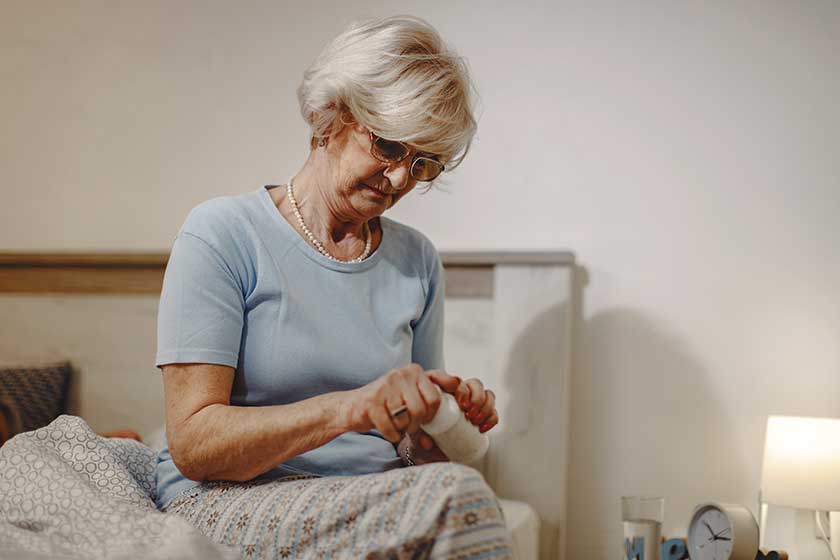Sleep is a vital component of health, particularly as you age. However, the use of sleeping pills for seniors can come with considerable risks. This blog post explores why reliance on these medications might be problematic and explores safer alternatives for managing sleep issues.
The Appeal and Risks of Sleeping Pills for Seniors
Sleeping pills, or sedative-hypnotics, are often prescribed to address insomnia and other sleep disturbances. While they can provide quick relief, potential dangers might overshadow their benefits, especially for older adults. The primary concern is the risk of dependency. Regular use of these medications can lead to tolerance, requiring higher doses to achieve the same effect, which escalates the risk of side effects.
Moreover, side effects such as dizziness, confusion and unsteadiness are particularly hazardous for older adults, increasing the risk of falls and subsequent injuries. Cognitive impairment, including memory issues and decreased alertness, is another significant risk, potentially affecting the ability to perform daily activities safely.
Interaction With Other Medications
Many older adults manage multiple health conditions and consequently take various medications. Sleeping pills can interact negatively with other drugs, leading to enhanced side effects or diminished effectiveness of some treatments. For instance, combining sleeping pills with medications for blood pressure or diabetes can lead to dangerously low blood sugar levels or blood pressure drops.
Impact on Sleep Architecture
Sleeping pills for seniors affect the structure of sleep, known as sleep architecture. While they may increase sleep duration, they often reduce the quality by altering the proportions of different sleep stages. Notably, the restorative deep sleep and rapid eye movement (REM) sleep stages can be significantly reduced, which are crucial for cognitive functioning and memory.
Alternative Approaches to Improving Sleep
Adopting non-pharmacological methods to improve sleep can be a safer and often more effective strategy. These include:
- Regular Physical Activity: Regular physical activity can significantly improve sleep quality. Even light activities like walking can help.
- Sleep Hygiene Practices: Establishing a regular bedtime routine, ensuring the sleep environment is quiet and dark, and avoiding stimulants such as caffeine close to bedtime can enhance sleep quality.
- Mindfulness and Relaxation Techniques: Meditation, deep breathing exercises and gentle yoga can reduce stress and promote better sleep.
Considering a Supportive Living Environment
For those who need additional support, considering a living arrangement that provides a nurturing environment and access to recreational and social activities can be beneficial. These settings can help maintain a regular daily routine, which is beneficial for sleep.
While sleeping pills might offer a quick solution to sleep problems in older adults, the risks often outweigh the benefits. Exploring alternative methods and adjusting lifestyle habits to improve sleep naturally can provide safer and more sustainable results.
If you’re looking for a supportive community that understands the importance of a good night’s rest and overall well-being, consider joining us. Our community offers a range of activities and events and senior living options to ensure you live your best life, rested and fully engaged. Contact us today to learn more about how we can help you achieve better health and peace of mind.







